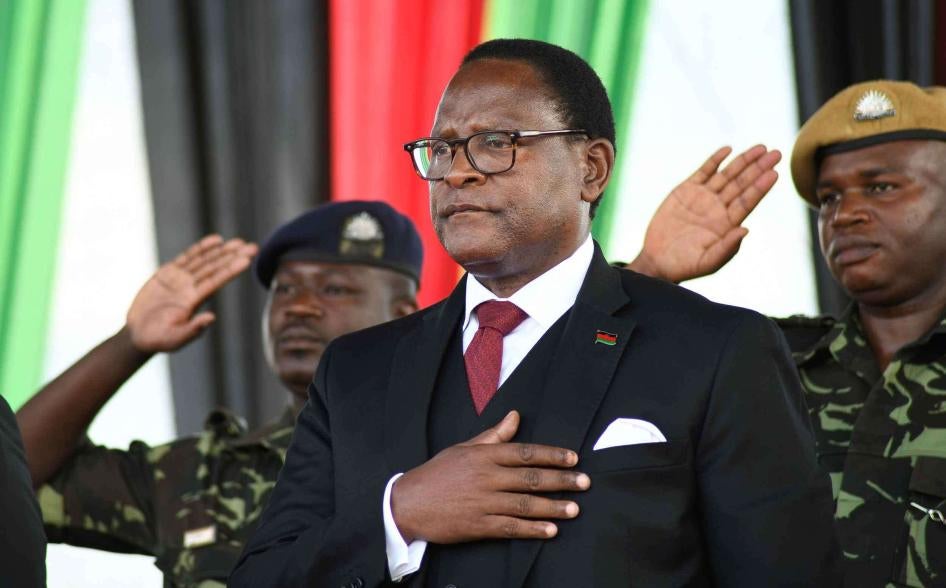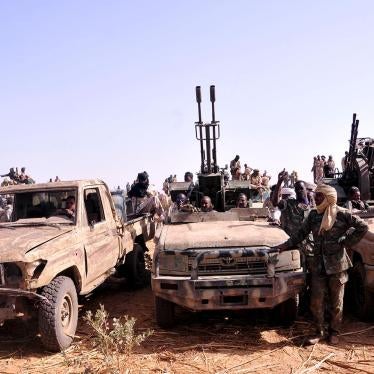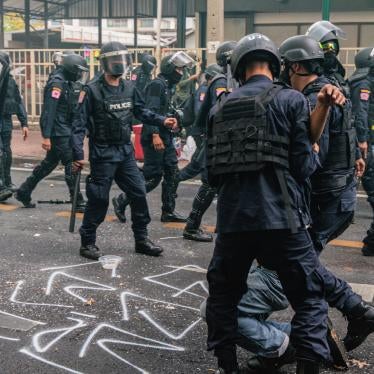(Johannesburg) – Malawi’s new president, Lazarus Chakwera, should use his electoral victory as an opportunity to reset the country’s human rights record. On June 28, 2020, Chakwera was sworn in as president following a rerun vote on June 23, in which he won 58.57 percent of the vote.
The presidential rerun vote came after the country’s Supreme Court upheld the Constitutional Court’s February order nullifying the incumbent President Peter Mutharika’s narrow victory in the May 2019 elections, citing serious irregularities, and ordered fresh elections within 150 days.
“President Chakwera should place respect for human rights and rule of law at the center of his new administration,” said Dewa Mavhinga, southern Africa director at Human Rights Watch. “The new president needs to put into action his own words that his victory at the polls is a victory for democracy and justice.”
Prior to the June elections, there was a spike in politically motivated violence with no arrests of those responsible, said activists monitoring abuses through the Malawi Human Rights Defenders Coalition. The activists said they had recorded an increase in electoral violence and the harassment of activists and opposition politicians.
The Media Institute of Southern Africa, Malawi Chapter (MISA Malawi), on May 31 issued a statement expressing concern that “Journalists are increasingly becoming victims of political violence as the country prepares for the fresh presidential elections.” MISA Malawi said that political party leaders and the Malawi Police Service should make a commitment to end political violence.
Chakwera said in his inauguration speech that his victory “will fulfill the dream of a new Malawi that will be for everyone.” His administration should act to ensure that the rights of all, particularly marginalized communities, are fully respected.
Malawi faces a wide array of human rights challenges, including rising economic inequalities, poverty and recurrent food insecurity. Violence and discrimination against women and girls are commonplace, rooted in a lack of gender equality and harmful cultural norms. In Malawi, 42 percent of women are married by age 18, and 9 percent by age 15.
While the Malawi Parliament in 2017 voted to amend the constitution to make marriage before the age of 18 illegal, Malawi officials need to act to change discriminatory attitudes among both lawmakers and the public to ensure that the law is effectively enforced. Many girls and women do not know their legal rights or where they can seek assistance if they are at risk of being forced into marriage.
Since 2014, at least 150 crimes have been reported against people with albinism, including killings, abductions, grave exhumations, and threats.
Malawi’s laws prohibiting consensual same-sex relations foster a climate of fear and fuel violence and discrimination. The punitive legal environment combined with social stigma allows police abuse to go unchecked and prevents many lesbian, gay, bisexual, and transgender (LGBT) people from reporting violence or getting medical care. The lack of clarity about the legal status of same-sex conduct leaves LGBT people vulnerable to arbitrary arrests, physical violence, and routine discrimination. The government should reaffirm the moratorium on arrests for consensual same-sex conduct issued by the Justice Minister in 2012 and move rapidly to decriminalize such conduct.
“President Chakwera should give particular attention to improving the lives of people in Malawi who have suffered inequality and discrimination,” Mavhinga said. “The prevailing goodwill from the people of Malawi and the global community should not be wasted.”








